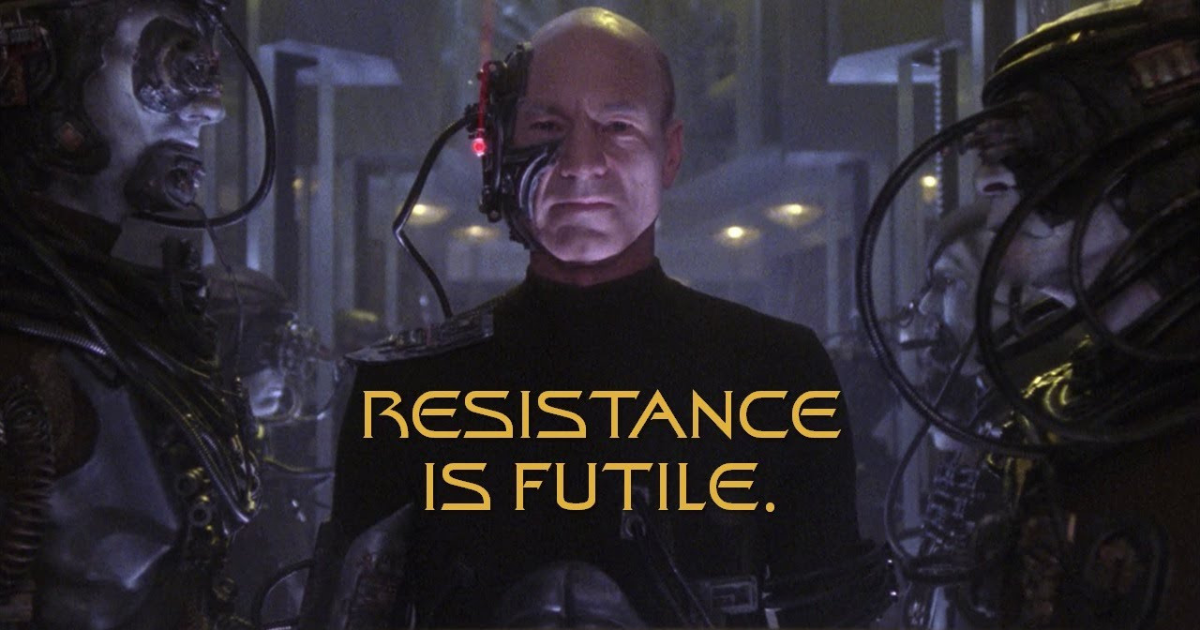Resistance is Futile
/If you’re a Star Trek fan you’ll probably remember the Borg saying—"Resistance is FUTILE."
Many people resist looking at their finances. They view budgeting or cash flow management as a punitive, authoritarian process and, for that reason, rebel or resist it. They feel controlled and react by refusing to look at their finances. The more they don't look, the scarier it becomes.
In truth, budgeting and cash flow management provide a system of financial boundaries that you set for yourself based on what is important to you. Financial clarity will help you feel more in control and have more peace of mind. You’ll have a greater sense of security that allows you to be open to an expanded sense of who you are, why you’re here, and what you truly want.
Lack of financial clarity creates a kind of financial fog, and the resulting vagueness makes it scary to move forward. The tendency is to either stop or move forward hesitantly. If you do move forward, the combination of fear and vagueness creates tunnel vision, and it becomes difficult to see options. With seemingly limited options, it can become discouraging, and hard to see a way out.
A mentor once said, “Be careful not to mistake motion for progress.” The more that fear drives your actions, the more likely you will feel like you're on a treadmill...crazy busy but not getting traction on your vision and financial goals. This is a recipe for frustration and burnout. Being confused, exhausted, overwhelmed, and stressed out results in being reactive rather than proactive and taking action on the wrong things.
In your attempt to keep money from controlling your life, it becomes the thing that drives your priorities and causes the greatest stress. Resisting dealing with your finances is exactly what perpetuates having your needs be the last to be considered or even falling off the radar completely. Anxiety about money can also lead to contracting your needs and wants. And when you ignore your true needs, it sets up a downward spiral emotionally that can impact your self-esteem negatively.
It is essential to take a holistic view of your financial needs, taking into consideration your personal and business financial needs. Being clear about the big picture of where you’re headed and looking for how to make it work for you and your business will challenge you to stop tolerating things that aren't working and look beyond your current way of doing things. With a more realistic view of what it's going to take to fund your vision, you can get strategic and make better decisions more quickly and look for creative solutions that help you work smarter rather than harder and, at the same time, raise the ceiling on your earning potential.
Financial clarity will lead to less stress and more peace of mind and will activate your creativity. It will change how you spend your time and money because you'll be more conscious of what is and isn't in alignment. As you take steps to realign how you’re using your resources — your time, money, and energy — with what you value and where you’re headed, you’ll feel a newfound sense of traction and progress.
I have had many people tell me they manage their finances intuitively, which usually doesn’t work very well! Here's what I've found based on experience. Getting the numbers out of your head and into an easy-to-understand format will free up your creativity. It will create space for intuitive insights and ideas to come through. As long as the numbers are swirling around in your head, they are in constant motion, and it’s challenging to get a read on what is going on and what will help. Getting the numbers out of your head stops the slipping and sliding, and you can see what is needed. Trust me; there are better things to occupy your mind than a swirl of financial details.
Imagine knowing what you want, where you are financially, and how much money is enough to support your vision of happiness and success. You may not yet know how to get there, but if you continue to hold the vision of what you want and quantify how much money is enough, you are letting the Universe know your desires financially.
If you’re ready to get off the hamster wheel and get strategic about funding your vision, I invite you to schedule a complimentary Discovery Session with me.




